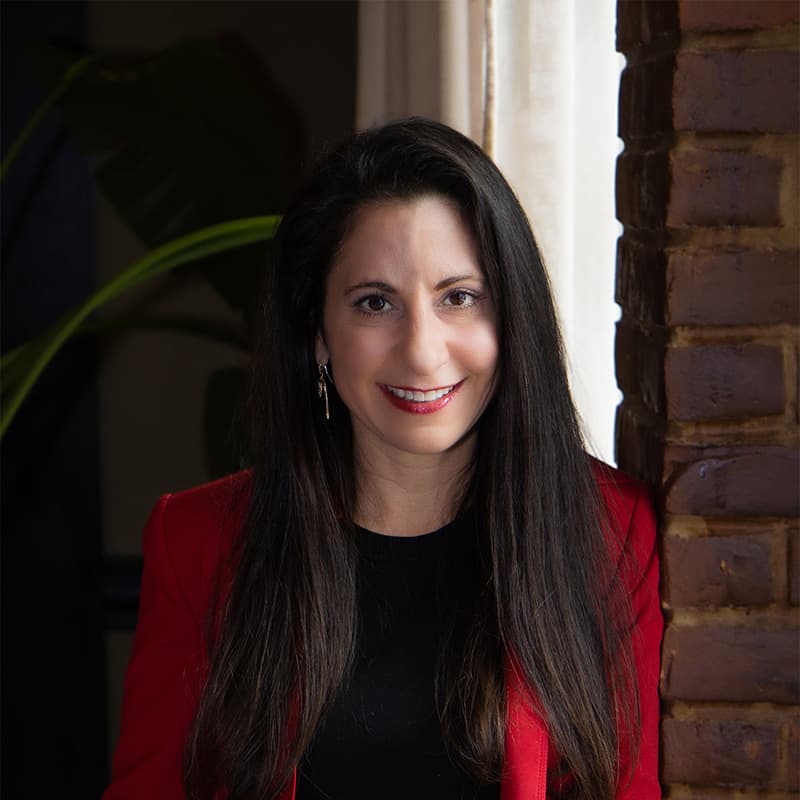

Eileen Shihadeh recently joined New Meridian as chief operating officer in March of 2023. Her appointment comes at a time of growth for the company, and with that, opportunity. Shihadeh works across several departments to spearhead the company’s growth strategy and improve operational efficiency. As part of this, she is determined to foster a diverse, equitable, and inclusive culture within the company by working alongside New Meridian’s Diversity, Equity, Inclusion, and Belonging (DEIB) Council.
We sat down with Shihadeh to learn more about her vision for the future of DEIB work at New Meridian and how other companies can begin to build a more inclusive workplace.
DEIB in the workplace is an imperative, long-term initiative. Where do you start?
The first step for a company in implementing DEIB practices in their work is to firmly establish that it’s a priority. Period. You must actively decide to allocate time, energy, and resources towards creating an employee experience that fosters a culture of belonging. The next step is to audit the current status, establish goals, and assemble a cross-functional, diverse task force.
Once a company assembles the DEIB task force, what does their work look like?
To break this down into actionable tasks, I see three big-picture parts to this work. First, we all need to increase our awareness level. Many of us think to ourselves, “I’m already inclusive! What more could I do?” Despite good intentions, there’s a lot we do subconsciously or out of habit, and we don’t fully understand the impact on others. We need to elevate our awareness level of our behaviors, our words and our actions, and the systems around us that may feel triggering, exclusive, or inhibiting to others. That’s step one.
Once you have that awareness raised, you can move on to step two, which is starting to identify what needs to change first – realistic and achievable actions you can take that will have the biggest impact.
Then, you begin to set cadences for evaluating the actions taken, creating the next steps, and monitoring progress of both the individual actions and the broader objective.
When you talk about monitoring progress, how would you do that?
There is both quantitative and qualitative feedback that can inform our progress. On the quantitative side, we look at demographic data, not just as a whole company, but also within departments. We also measure attrition, advancement, pay, recruitment and the candidates being considered for open positions. We also regularly survey employees to solicit feedback to understand how we’re doing. Do employees feel valued and respected, regardless of their background or identity? What areas do they still need us to address? You can measure progress through a combination of metrics and hard numbers as well as commentary from the people we’re aiming to serve.
Do you have a personal experience related to DEIB work that resonates with you?
At one of my previous companies, we maintained multiple offices around the country, and we decided to consolidate to one office in the US. The executive team and board of directors chose Scottsdale as the new headquarters, and we offered relocation packages to everyone in the Maryland office to move to our new headquarters in Scottsdale, Arizona. I had a direct report come to me and voice their concern with the upcoming move. They candidly told me that moving employees away from Maryland meant moving them away from an area with immense diversity.
Everyone planning this move had been sitting in an office and thinking about the costs, the logistics, the tax and labor implications, and many factors that went into this decision. Meanwhile, here was this key vector, the diversity in that area, that was not brought up once throughout the planning process. This is why raising awareness levels is so important, so when you are making decisions like this DEIB considerations are always top of mind. This experience also confirms how important it is to have diverse input and decision-makers in the room with varied experiences and backgrounds.
New Meridian is committed to building an equitable and inclusive culture. If you’d like to join us on this journey, check out our careers page.


